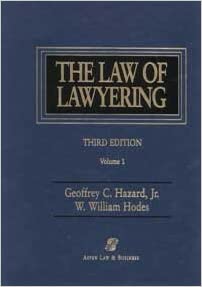INSURANCE COVERAGE LITIGATION:
A FEW DEPOSITION QUESTIONS
Michael Sean Quinn, Ph.D, J.D., C.P.C.U., Etc.
2112 Hartford Rd
Austin, Texas 78703
(O & C) 512-656-9759
(O & C) 512-656-9759
(Resumes at www.michaelseanquinn.com)
Insurance bad faith cases can depend on the common law and/or
relevant statutes. Both sources require
insurer to move “with dispatch” (my term) in handling claims. Sometimes statutes specify particular
internals, e.g., 10 days, two weeks, etc. Usually, those dates are measured
from the insurer receives needed material from the insured.
relevant statutes. Both sources require
insurer to move “with dispatch” (my term) in handling claims. Sometimes statutes specify particular
internals, e.g., 10 days, two weeks, etc. Usually, those dates are measured
from the insurer receives needed material from the insured.
Against that background, consider this
question:
question:
Is
it important for an insurer to determine their coverage position as quickly as
possible?
it important for an insurer to determine their coverage position as quickly as
possible?
The correct answer to this question is an expanded version
of “Yes,” matters are actually more complicated
than answering a simple “Yes.” Now for the
problem. In depositions, examining counsel always tries to get “Yes” answers to
questions like this one. This “push”
needs to be resisted.
of “Yes,” matters are actually more complicated
than answering a simple “Yes.” Now for the
problem. In depositions, examining counsel always tries to get “Yes” answers to
questions like this one. This “push”
needs to be resisted.
The reason is that the idea of the possible is a very complex one.
The term “possible” is ambiguous, and can easily create confusion. If the term “possible” means “as quickly as
it could be done,” then such a decision can be made in a matter of minutes, and
that is the intent of the lawyer for the policyholder. Rhetorically, the goal is to create a trap
where the testifying adjuster or expert will be committed to an absurdly short
period of time.
The term “possible” is ambiguous, and can easily create confusion. If the term “possible” means “as quickly as
it could be done,” then such a decision can be made in a matter of minutes, and
that is the intent of the lawyer for the policyholder. Rhetorically, the goal is to create a trap
where the testifying adjuster or expert will be committed to an absurdly short
period of time.
Here are some of the components that need to be added: (1) being
able to make the decision based upon evidence and reason is crucial, (2) the
use of evidence and reason requiring access to relevant information, and this
often means documents and people, (3) the analysis at the insurance company (or
its managing general agent or its independent adjuster and then itself) needs
stop be able to think about it, and (4) trying to do something in a reasonable
manner takes time.
able to make the decision based upon evidence and reason is crucial, (2) the
use of evidence and reason requiring access to relevant information, and this
often means documents and people, (3) the analysis at the insurance company (or
its managing general agent or its independent adjuster and then itself) needs
stop be able to think about it, and (4) trying to do something in a reasonable
manner takes time.
It other words the answer should include all of (1)-(4), it
may be advisable to include the world “dispatch,” or a word equivalent to or
like it. So here are some other
possibilities:
may be advisable to include the world “dispatch,” or a word equivalent to or
like it. So here are some other
possibilities:
(1) Yes and No.
(2) No and Yes.
(3) It depends on what one means by
“possible.”
“possible.”
I tend to
prefer #(3).
prefer #(3).
Often the next question is:
What do you
mean by “possible”?
mean by “possible”?
In that case the answer begins with “It depends on the
situation.” A witness could stop there,
but that’s ill advised. It looks like
the witness is trying to avoid answering the question forth rightly.
situation.” A witness could stop there,
but that’s ill advised. It looks like
the witness is trying to avoid answering the question forth rightly.
It’s better to go this way:
When I say “possible” in dealing with questions like this, I
mean to be saying “when it can be done reasonable on the basis of actual
information provided to or obtained by the carrier. Trying to do something
right may takes time.”
mean to be saying “when it can be done reasonable on the basis of actual
information provided to or obtained by the carrier. Trying to do something
right may takes time.”
It’s fine to
stop right there, but if examining counsel really wants an answer, give counsel
this:
stop right there, but if examining counsel really wants an answer, give counsel
this:
In this context “possible” means commencing the adjustment
process directly, seeking information as part of that process, thinking about
the problems objectively, obtaining help as needed, and then drawing a
conclusion. All of this should be done
with dispatch.
process directly, seeking information as part of that process, thinking about
the problems objectively, obtaining help as needed, and then drawing a
conclusion. All of this should be done
with dispatch.
Many lawyers will object to this answer: “Objection, not
responsive.” And if the lawyer is a donkey’s behind, this will said, “Now,
listen to my question.”
responsive.” And if the lawyer is a donkey’s behind, this will said, “Now,
listen to my question.”
In my
opinion, the best response is simply to say,
opinion, the best response is simply to say,
I don’t have
anything else to say. I’ve answered your question.
anything else to say. I’ve answered your question.
If the
lawyer is a large donkey with a huge behind, he might say,
lawyer is a large donkey with a huge behind, he might say,
Repeat back
to my question.
to my question.
This is not
a question, so the witness does not need to response. Our large donkey might
ask,
a question, so the witness does not need to response. Our large donkey might
ask,
What
question do you think I asked?
question do you think I asked?
At this point, the witness has three choices. (1) Try to
repeat it. (2) Ask the court reporter to read it. (3) Ask counsel to ask it
again. Of these #(3) is the best.
repeat it. (2) Ask the court reporter to read it. (3) Ask counsel to ask it
again. Of these #(3) is the best.
Above all,
simply keep repeating what you have said, in one way or another. Examining counsel is eating up his clock.
simply keep repeating what you have said, in one way or another. Examining counsel is eating up his clock.
There is a
variation on this discussion. Suppose the lawyer’s question is this:
variation on this discussion. Suppose the lawyer’s question is this:
It’s
important for an insurer to try and determine and announce its coverage
position asap, true.
important for an insurer to try and determine and announce its coverage
position asap, true.
This is a
leading question, but a “Yes” or “No” answer should be avoided. Here are
options:
leading question, but a “Yes” or “No” answer should be avoided. Here are
options:
(1) I don’t understand your question,
please spell it out for me.
please spell it out for me.
(2) Depends
(3) Depends on the circumstances
(4) Can’t be answered that way.
(5) I don’t know how to answer what
you’ve asked when you put it this way.
you’ve asked when you put it this way.
Any of these
will do. There is no—really, NO!–such thing as a “’Yes’ or ‘No’”
question.
will do. There is no—really, NO!–such thing as a “’Yes’ or ‘No’”
question.
There are always several more answers:
(6) I don’t know.
(7) I don’t understand.
(8) I don’t remember what “asap” means.
(This is a nice way into the idea of the “possible.”)
(This is a nice way into the idea of the “possible.”)
Examining
lawyers will almost always tell a witness that if he does not understand a
question, ask him/her to explain it. So do this:
lawyers will almost always tell a witness that if he does not understand a
question, ask him/her to explain it. So do this:
(9) I don’t understand how the term “try”
is figuring in here.
is figuring in here.
(10)
I
don’t really see how the term “possible” works in this sentence.
I
don’t really see how the term “possible” works in this sentence.
(11)
Wait,
what does “possible” mean in your questions.
Wait,
what does “possible” mean in your questions.
Try not to
fall into deposition traps! Go slow. Listen carefully. Hesitate. Don’t hesitate to hesitate.
fall into deposition traps! Go slow. Listen carefully. Hesitate. Don’t hesitate to hesitate.





Recent Comments